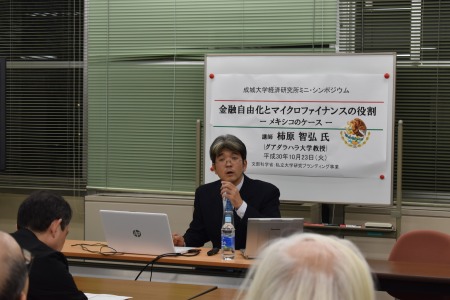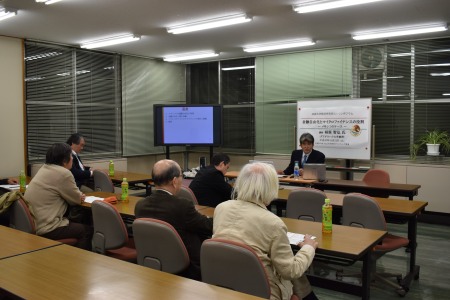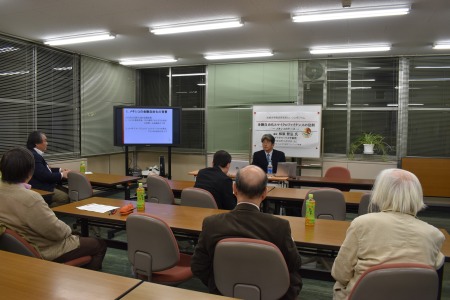

NEWS
2018.12.13
Tomohiro Kakihara, Center of Economic and Administrative Sciences, University of Guadalajara
<Dates & Venue>
On Tuesday, October 23, 2018, Seijo University’s Institute for Economic Studies jointly hosted a mini-symposium, titled “Financial Deregulation and the Role of Microfinancing: The Case of Mexico,” as part of the university’s MEXT-supported Research Branding Program for Private Universities. Hiroshi Fukusmitsu (Faculty of Economics, Seijo University) chaired the event, and I (Tomohiro Kakihara, Center of Economic and Administrative Sciences, University of Guadalajara) delivered a presentation.
<Synopsis>
I spoke on the role of microfinancing in Mexico, where financial services have been liberalized. I began my presentation by outlining the background of Mexico’s financial deregulation and its impact, focusing on the restructuring of the country’s banking sector. I then reviewed the recent trends and issues in Mexico’s microfinancing.
Mexico experienced two major financial crises, one in 1982 and another in 1994. During both crises, the Mexican Government worked actively to attract foreign capital, in an effort to restore the nation’s finances. Consequently, the status of local banks declined, while foreign-owned banks came to dominate the market. I acknowledged that globalization had helped stabilize the financial system, but argued that squeezing out the local banks had diminished the government’s ability to control the country’s financial system.
This development in Mexico was accompanied by a rise in local microfinancing organizations. I noted that over 90 microfinancing organizations are registered in Mexico. The purpose of microfinancing is typically to provide financial services to less-privileged individuals, who have limited access to conventional banking channels. In Mexico, however, microfinancing is also seen as a system of small loans with an entire spectrum of consumer finance services. It is also frequently used by city dwellers. In this respect, microfinancing serves as a local financial infrastructure and contributes to localization. I argued that microfinancing often provides migrant remittance services in exchange for repayments; therefore, there is a close connection between microfinancing and migrant remittances.
The seminar concluded with a spirited discussion among the attendees. The topics discussed included the extent to which direct investments impacted the Mexican economy during the financial crises, the relationship between microfinance users and the percentage of account holders, the role of banks in migrant remittance, and the future outlook.


